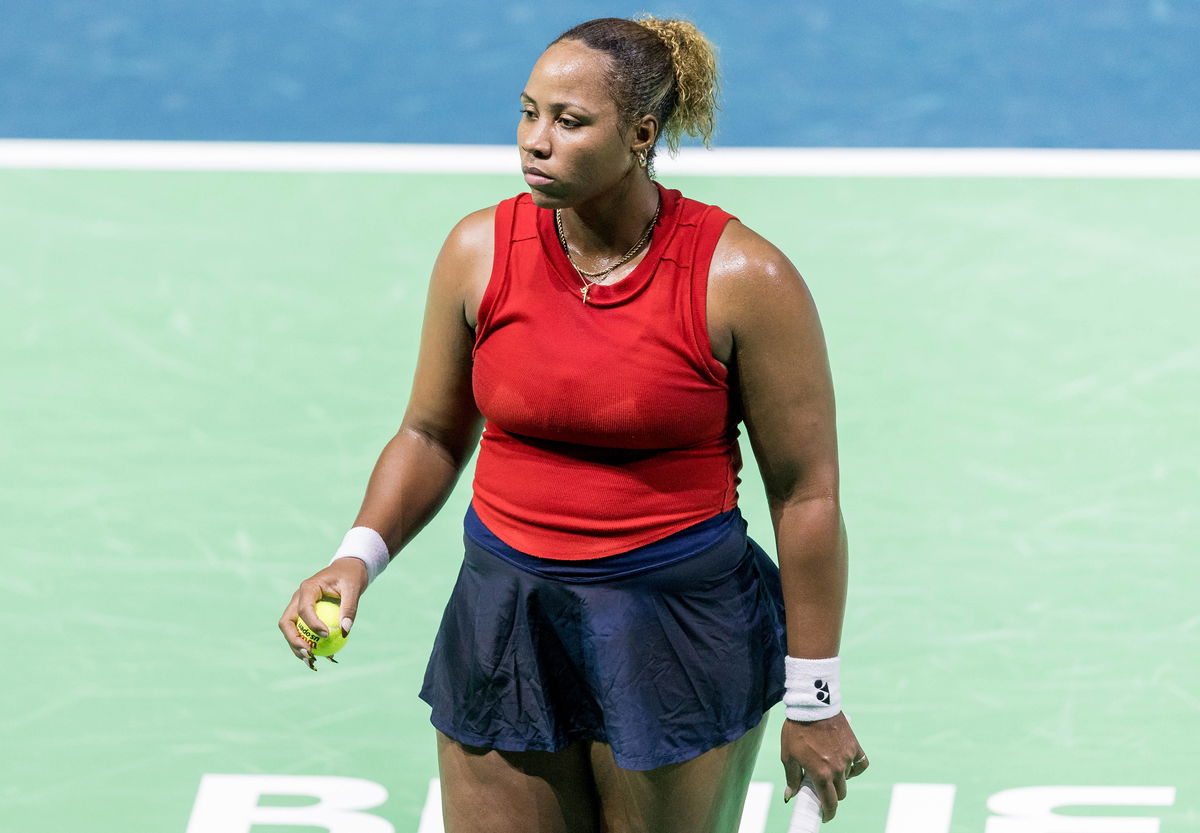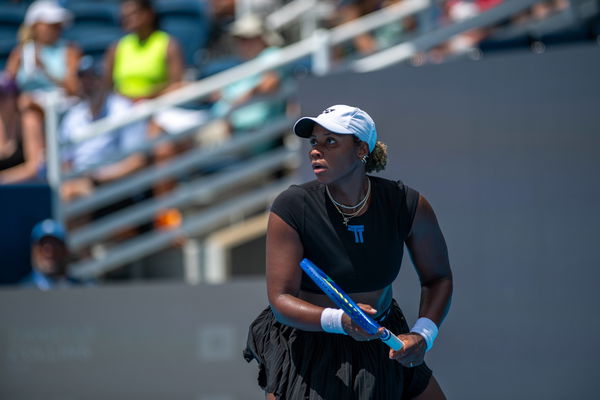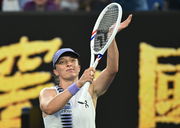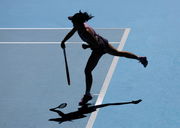
Imago
Slovakia vs USA – Billie Jean King Cup Finals Taylor Townsend during Billie Jean King Cup Finals match Slovakia vs USA in Malaga Spain on 14 November 2024. Malaga Spain PUBLICATIONxNOTxINxFRA Copyright: xFotoxOlimpikx originalFilename:jastrzebowski-slovakia241114_npyoG.jpg

Imago
Slovakia vs USA – Billie Jean King Cup Finals Taylor Townsend during Billie Jean King Cup Finals match Slovakia vs USA in Malaga Spain on 14 November 2024. Malaga Spain PUBLICATIONxNOTxINxFRA Copyright: xFotoxOlimpikx originalFilename:jastrzebowski-slovakia241114_npyoG.jpg
Remember when Jessica Pegula, last year’s US Open runner-up, said, “I know there are a lot of girls who don’t sleep. Just lying in bed, making sure the doorbell works, every single phone is on — it can be very stressful.” She was talking about the relentless anti-doping protocols based on the WADA code. Nothing has changed, but since late 2024, when Jannik Sinner and Iga Swiatek were sanctioned for breaching them, player anxiety has only deepened. Now, with the Billie Jean King Cup approaching, Taylor Townsend has stepped up, blasting anti-doping authorities and shining a harsh light on the system.
Watch What’s Trending Now!
Just moments ago, Taylor Townsend took to her Instagram stories to share a raw glimpse into life as a pro athlete under anti-doping rules. In one clip, she revealed, “Just had anti-doping come to my room,” setting the tone for what came next.
She didn’t hold back, venting her frustration: “This is so annoying. This has to be one of the most annoying things about being a pro athlete. I swear to you. Outside your time slots, no advance, no this testing, like this is just the most annoying thing. I was about to go to bed, and someone called me, knocking on my door.”
ADVERTISEMENT
Normally, athletes are tested after the competition, once the sweat, emotion, and adrenaline have settled. Doping Control Officers collect urine and blood samples, which are sent off for analysis. But in recent years, the game has changed, literally. Now, samples are often taken before the competition even begins. The reasoning? Some performance-enhancing drugs have detection windows so short they can vanish in the time it takes to play a single set, sometimes even less.

Imago
Cincinnati Open: Round 1 Match Danielle Collins V Taylor Townsend Taylor Townsend is seen during the Round 1 match between Danielle Collins USA and Taylor Townsend USA at the Cincinnati Open in Mason, Ohio, on August 8, 2025. Mason Ohio United States PUBLICATIONxNOTxINxFRA Copyright: xJasonxWhitmanx originalFilename:whitman-cincinna250808_np6fT.jpg
According to the World Anti-Doping Code, an “in competition” test can occur any time from 23:59 on the day before a competition through the end of that event and the related sample collection process. This definition has been locked into the Code since 2021, and sports organizations are now using it to test athletes prior to their matches.
ADVERTISEMENT
There is a logic behind this tightening of the net. First, the rules permit it, and second, it allows authorities to catch those who might use substances designed to enhance performance during play but disappear quickly after. Blood doping, for instance, has a very narrow detection window, yet its benefits, increased endurance and stamina, can swing a grueling three-hour match.
Even top names have bristled at this new regime. Novak Djokovic himself voiced outrage when asked to submit to testing before a match, claiming the intrusion broke his carefully crafted pre-match routines. The psychological weight of these tests is real, and it now looms large in the minds of players before they even step on court. Ask Naomi Osaka, for instance. After the US Open, Osaka faced intrusion from the anti-doping agency twice within five days.
ADVERTISEMENT
Top Stories
John McEnroe Breaks Silence on the Potential of Coaching Carlos Alcaraz After Australian Open

Iga Swiatek at the Center of a Possible WTA Shake-Up After 4-Time Slam Winner Speaks Out

Ukrainian Tennis Media Calls Out WTA’s Silence on Player Support

Australian Open Star Who Defeated Jannik Sinner to Win $1M Gets His Tennis’ Biggest Call

Emma Raducanu’s Coaching Turmoil Sparks Sharp Questions From Tennis Legend: “Who’s Making Those Decisions?

The International Tennis Integrity Agency (ITIA) and WADA recently agreed that neither Iga Świątek nor Jannik Sinner intentionally doped in their respective cases. Still, their bans sent shockwaves through the locker room, sharpening player fears over accidental contamination and the severe penalties that can follow. Whereabouts violations, even if accidental, bring a mandatory two-year ban for three missed tests, a nightmare scenario for any professional.
Ons Jabeur described the Sinner and Świątek bans as “a wake-up call.” At a London conference in May hosted by Sports Resolutions, ITIA senior director Nicole Sapstead admitted there has been “a big uptake of players asking questions about contamination.” Anxiety has become part of the athlete’s job description, not just in tennis but across sports.
A 2022 USADA survey revealed just how deep these worries run: 88 percent of nearly 1,000 athletes from 76 sports reported anxiety about supplement contamination, and 86 percent expressed fear over whereabouts rules. USADA CEO Travis Tygart painted a striking picture, explaining how an athlete spending the night at their partner’s home could face 21 potential contamination risks, from food to dishes to third-party contact, all before facing the added stress of logging their daily whereabouts hour for surprise testing.
ADVERTISEMENT
For tennis players, the burden is particularly heavy. The constant travel, last-minute scheduling, and lack of large entourages for lower-ranked players make compliance uniquely stressful. The International Registered Testing Pool (IRTP) shifts constantly, pulling in singles players ranked inside the top 100, top-10 doubles specialists, and top wheelchair athletes.
While addressing the doping controversy, Taylor Townsend couldn’t resist a playful dig at Coco Gauff, cheekily calling her out over long-pending business, blending humor with candid honesty in her recent post.
ADVERTISEMENT
Taylor Townsend playfully calls out Coco Gauff over business
Last month at Flushing Meadows, when Coco Gauff was asked about her connection with Taylor Townsend, the 21-year-old recalled an old memory with a smile: “Taylor always has warmed up at the net since juniors. I played her in a challenger, like when I was 14 and that’s what she did.” From that moment, Gauff has looked up to Townsend, cultivating a bond that blends mentorship, friendship, and playful camaraderie. Over the years, their relationship has grown stronger, with mutual respect both on and off the court.
The two WTA stars are known for talking highly of each other, sharing jokes, and backing one another in the tour’s grind. Yet Townsend recently revealed that Gauff still owes her a small, fun promise, a dinner that has yet to happen. On the September 9 episode of The Pivot Podcast, Townsend opened up about the story, giving fans a glimpse of her personality beyond the baseline.
“I don’t be going to dinner with people, not the players. Me and Coco (Gauff) have been talking for a long time,” Townsend admitted, teasing her compatriot with her signature candor. She revealed how Gauff kept saying, “‘Oh I owe you a dinner, I owe you a dinner.’ Girl, come on.”
ADVERTISEMENT
The playful jab continued as Townsend reminded listeners, “She owed it to me from last French Open. This is like, come on.” Despite the teasing, she quickly clarified, “It’s nothing personal,” prompting the podcast hosts to burst into laughter. Townsend’s humor and openness make her a relatable and entertaining figure on tour.
Beyond banter, Townsend has also been vocal about tennis’ new rules, making life on tour slightly more bearable for players navigating the sport’s pressures. Her candor resonates with fans and peers alike, adding a refreshing layer to her competitive persona.
As Team USA begins its quest to reclaim the Billie Jean King Cup by Gainbridge, starting Thursday, September 18, against Kazakhstan in the quarterfinals at Shenzhen Bay Sports Centre Arena, Townsend’s form will be pivotal. Her energy, skill, and on-court leadership will play a key role in Team USA’s pursuit of glory, blending fierce competition with her trademark humor and authenticity.
ADVERTISEMENT
ADVERTISEMENT
ADVERTISEMENT
ADVERTISEMENT
